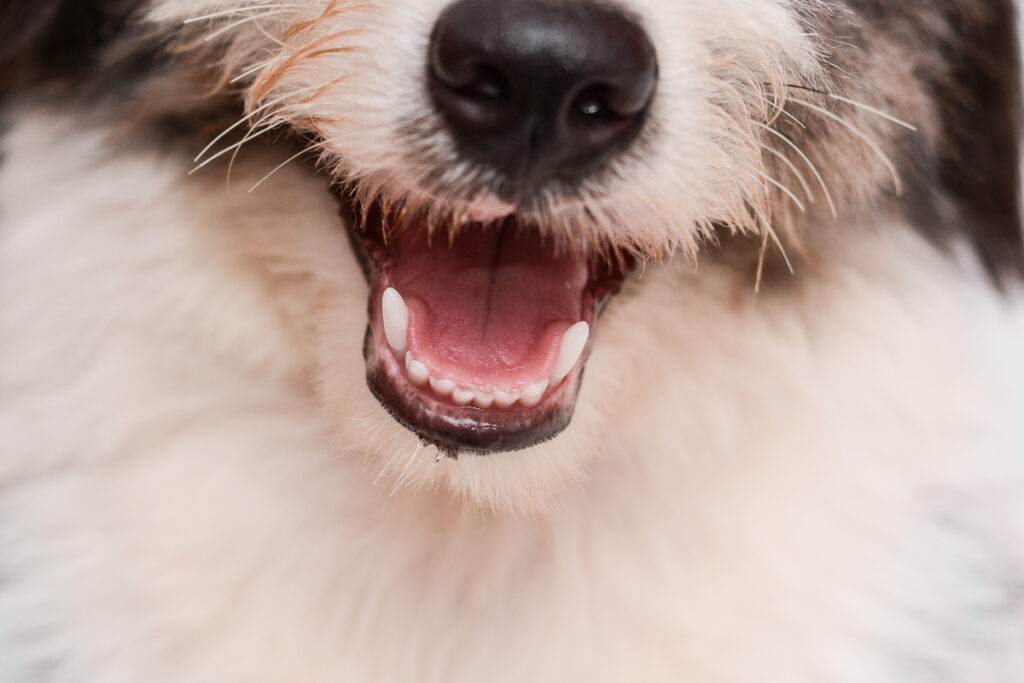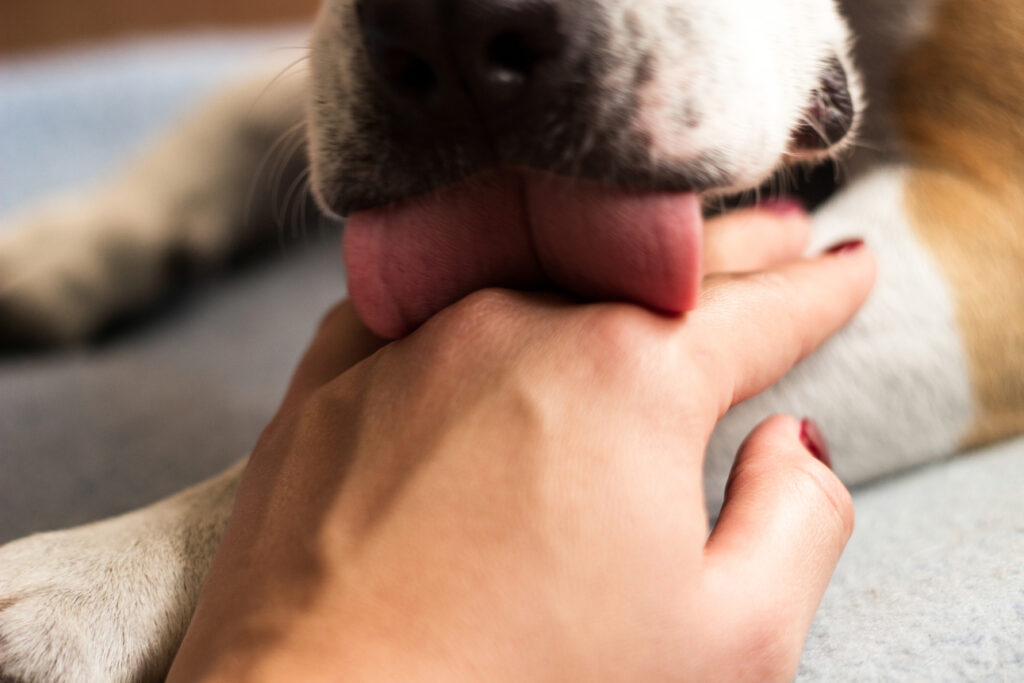One of the common behaviours a dog does is to lick your face whenever they greet you or when you cuddle with them. Many of us may think it’s a sign of affection a dog does to their owners. After all, most of us don’t think too much about dog saliva unless it happens most of the time. It’s not wrong to think that dog licking your face is their way of showing their love, but also it’s important to know what a dog saliva contains and how it can affect you.
If you’re a pet owner, you might find yourself wondering if a dog saliva is safe or not. If you’re unfamiliar with dog saliva, here’s a list of interesting facts about dog saliva you might not know about!
Facts You Should Know About Dog Saliva

A dog’s saliva is not cleaner than a human’s saliva, contrary to what the myths say about it. Especially since dogs do not have proper oral hygiene and have a tendency to lick their feet, body, and private parts. Some of them may even eat poop! Their saliva may contain dangerous diseases such as Salmonella and E.Coli and parasites such as Giardia, too. Despite that, dogs do not actually carry large quantities of those diseases and parasites, so they do not pose a serious threat to our health whenever dogs lick you.
Dog saliva might be a low-risk threat for most people, but for some, they may be at higher risk to contract possible diseases and sicknesses from them. The following are recommended to avoid being in contact with a dog’s saliva as much as possible:
- Pregnant women
- Babies
- Senior citizens
- Those with compromised immune systems (ex. AIDS patients, chemotherapy patients, etc)
- Anyone recovering from illnesses
Lower the risk of contracting any possible disease or illness from your dogs by keeping them healthy and staying up-to-date on their checkups and annual vaccinations required. Having your dog go through health checkups can help determine to see if they are safe from any disease or parasites that can affect their health and yours as well. Each time you handle your dog, you must wash your hands regularly and properly clean up after your dogs after they’re done doing their business. It is also important that your dogs are fed properly cooked or fresh meals to prevent bacteria from raw or expired food from spreading into your dog’s mouth. Lastly, add brushing your dog’s teeth into your daily routine to lower the risk of oral issues and lessen bacteria buildup in the mouth. Having proper oral hygiene is important to your dog’s health.
How to Stop Dog Licking
Dog licking is safe as long as you and your immune system are healthy. While it is safe for your dog to lick you, you can lessen or put a stop to it by changing their behaviour or habits. One of the best ways to do so is to stop responding, ignore it, and pull away when your dog licks you. Dogs are motivated by the response, so if they do not get the response from you that they would usually get from licking your face, they will eventually stop.
List of the Top 5 Facts about Dog Saliva

Dog Saliva Has Antibacterial Properties
Dogs usually clean themselves by licking, especially if there are any itchiness or wounds present. A dog’s saliva contains proteins, antimicrobial enzymes, and peptides that help prevent infection in wounds. There is also evidence of their saliva helps speed up the healing process of cuts or wounds. Contrary to what some myths say, dogs’ saliva does have healing properties but will only work on themselves, and not when applied to humans.
Sometimes, a dog’s saliva may contain bacteria that may also worsen the wounds, so it’s better to bring the dog to your vet for proper treatment of any injuries or cuts.
Dog Saliva Helps Prevent Canine Cavities
A dog’s saliva is slightly alkaline that helps buffer the bacteria in their mouth that causes tooth enamel decay. It helps prevent cavities in dogs’ teeth, which is why dogs require fewer visits for dental checkups.
Some Dog Saliva May Transfer Bacteria or Parasites To You
They may contain healing and antibacterial properties, but it doesn’t mean that a dog’s saliva is clean – it’s quite the opposite. It’s possible for bacteria or parasites to be transferred to humans through dog licking. Some studies show that tooth and gum bacteria can be transferred to pet owners as well. It affects humans differently, from mild to severe and can most likely affect those with dysfunctional immune systems.
Excessive Dog Saliva Can Be A Sign of Different Health Issues
Dogs produce drool or saliva for many different reasons. It can be due to excitement or stress, but it can also be due to health issues that pet owners should be aware of.
Excessive drooling or producing more saliva than usual may be a sign of the following issue:
- Nausea
- General pain in the body
- Oral health problems
- Dental issues such as broken teeth or gum infection
- Motion sickness
- Anxiety
- Heatstroke or overheating
- Mouth injuries
- Foreign objects stuck in the mouth or throat
- Gastrointestinal problems
- Being exposed to certain plants, cleaning products, or food
If you see any other changes in their behaviour such as decreased appetite, bleeding, pawing their face, vomiting or diarrhoea, being in pain, or difficulty in eating, make sure to bring them to the veterinarian to get them treated as soon as possible.
You Can Get Dog Saliva Allergy
Dog saliva allergies exist and anyone can get them. It can be traced back to the proteins found in a dog’s saliva that may be the cause of it – which contains 12 different allergy-causing proteins. You can get allergies when a dog licks you, or airborne when a dog’s saliva dries down on their skin after licking it.
Conclusion
While it is not uncommon for dogs to lick you, every pet owner should be aware of what dog saliva contains. You may want to reconsider or stop your dog’s licking on your face altogether, since it’s not cleaner than a human’s mouth. A dog’s mouth is full of bacteria that cannot be contracted by humans except for those with immune system dysfunction. It does contain antimicrobial, healing, and anti-cavity functions. Humans can also get allergies from them, aside from possible infections, but not dog illnesses. Lastly, be sure to check for your dog’s drool to see if they are normal or not, since excessive drooling may be a sign of a health issue that you should be aware of.


